Politics and Government: Zionism
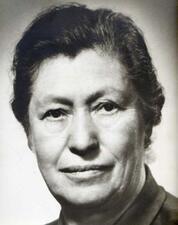
Bessie Goldstein Gotsfeld
Jeane Herskovits Gottesman
Jeane Herskovits Gottesman was a philanthropist noted for her spiritual devotion to her work. She raised money for Jewish education, helping to support Yeshiva University, and was also a dedicated board member of Hadassah. Through Hadassah’s Youth Aliyah program, she helped rescue Jewish children during the Holocaust.

Sally Gottesman
Sally Gottesman, born 1962 in New Jersey and residing in New York, is a non-profit entrepreneur whose leadership and philanthropy have had a major impact on the Jewish feminist and justice landscape.
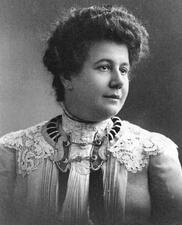
Emma Leon Gottheil
As a translator, Emma Leon Gottheil helped spread the ideals of Zionism across America, but as founder of the Women’s League for Palestine, she turned those ideals into reality.
Aliza Greenblatt
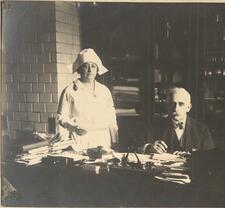
Amelia Greenwald
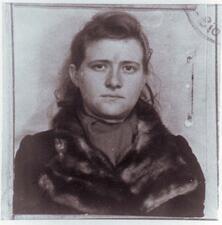
Haika Grosman
Politically active from a young age, Haika Grosman played a key role in the underground resistance to Nazi occupation and the Holocaust and put her safety on the line in the name of the movement.
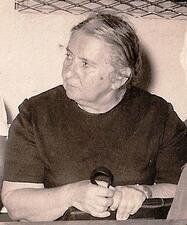
Rivka Guber
Through her work as a soldier, writer, teacher, and volunteer supporting immigrants, Rivka Guber exhibited selflessness for her neighbors and for the young State of Israel as a whole, earning her the title “Mother of the Sons” and the respect of the nation.
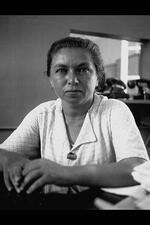
Bracha Habas
Bracha Habas was an educator and one of the first professional women journalists in Erez Israel. She was a member of Davar’s editorial board and the co-founder of its children’s newspaper, Davar le-Yeladim. Enumerating on Habas’s 48 publications, Rahel Adir described her as “the recorder of Yishuv history.”
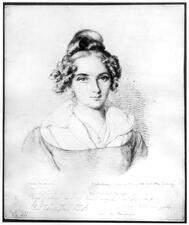
Habsburg Monarchy: Nineteenth to Twentieth Centuries
Jewish women in the Habsburg Monarchy experienced the stresses and strains of nineteenth- and twentieth-century Jewish life as Jews, as women of their particular social classes, and as inhabitants of the different regions of the Monarchy. In some regions, they modernized and acculturated, but the overwhelming majority remained deeply pious, traditional Jews.
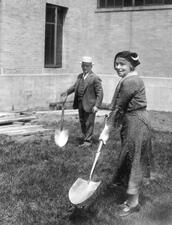
Hadassah in the United States
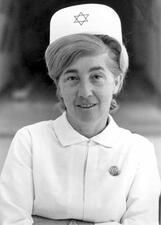
Hadassah School of Nursing: First Graduating Class
Nursing was not recognized as a profession in Israel until 1918, when the American Zionist Medical Unit, which later became the Hadassah Medical Organization, opened a nursing school. The first graduates were the leaders and pioneers of the nursing profession in Israel.
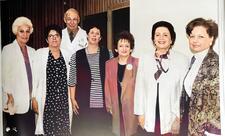
Hadassah: Yishuv to the Present Day
Hadassah, the Women’s Zionist Organization of America (HWZOA) has a lengthy history of activity in the Yishuv and Israel, going back to 1913, about a year after it was founded in New York, and continuing to this day. This activity, outstanding in its scope, continuity, stability, and diversity, encompasses efforts in the sphere of health and medical services and in the welfare of children and youth.
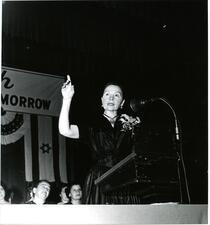
Rose Luria Halprin

Jane Harman
The child of a refugee from Nazi Germany, Jane Harman began her career in law. After being elected in 1992, she spent 20 years as a vocal advocate of Israel, pro-choice legislation, and women’s issues as a Representative for California’s 36th Congressional District. After leaving Congress for the private sector, Harman held leadership positions in several prominent political organizations.
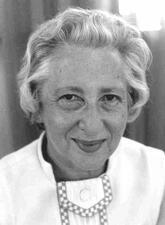
Zena Harman
Zena Harman, diplomat, parliamentarian and social innovator, helped lay the foundation for Israel's advanced network of social services, became one of Israel's foremost diplomats in Israel's formative years, and helped to establish a series of civil society organizations concerned with protecting children's rights, empowering women, and promoting greater civic engagement in public life in Israel.
Marion Hartog
Marion Hartog and her sister Celia published influential poetry and books on Jewish themes, including works that were among the first fictions ever published by Jewish women anywhere in the world. Hartog later created and edited the first Jewish women’s periodical in history, The Jewish Sabbath Journal.
Hasidism
Sylvia Hassenfeld
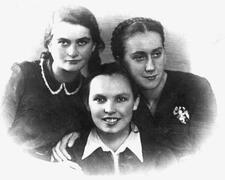
Bela Ya’ari Hazan
On the outbreak of World War II, Bela Hazan escaped her hometown of Rozyszcze, Poland, for Vilna, where she worked as a smuggler for the Dror movement. She was arrested by the Gestapo in 1942 and sent to Auschwitz, where she served as a nurse, then to Ravensbruck, and finally to Leipzig, from which she was liberated. She immigrated to Israel, where she died in 2004.
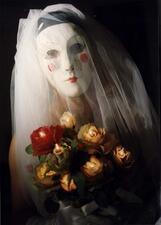
Hebrew Drama: Representation of Women
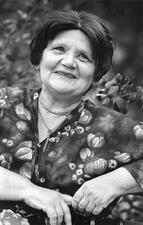
Hebrew Song, 1880-2020
Hebrew song as a whole, including songs of Erez Israel and the State of Israel, is a unique socio-cultural phenomenon that has developed over time. The dawning of Hebrew song can be traced to the period between 1880 and 1903, and it has grown to reflect the diverse aspects of Israeli society since then. The contribution of women to Hebrew songs, in general, has risen steadily over the years.
Judith Hendel
For over fifty years, Israeli author Yehudit Hendel succeeded brilliantly in making a presence of her bold, independent, “other” voice, bringing us face to face, in her own way, with the fragilities of an Israeliness in search of itself.
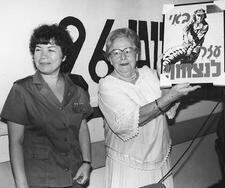
Esther Herlitz
Esther Herlitz was a feminist trailblazer in Israeli politics and diplomacy. She was the first official female Israeli ambassador, among six female Labor Party members who served in the eighth and ninth Knessets, and the first woman to serve on the Committee for Foreign Affairs and Defense. She also helped formulate and ensure the passage of a liberal abortion law in 1977.
Gertrude Hirschler
A celebrated translator of deft skill and a woman of great principle, Gertrude Hirschler refused to translate, edit, or publish any book that did not mesh with her ideals or beliefs. Hirschler’s literary contributions are highly regarded in the areas of Jewish history, the Holocaust, religious literature, and Zionism.


